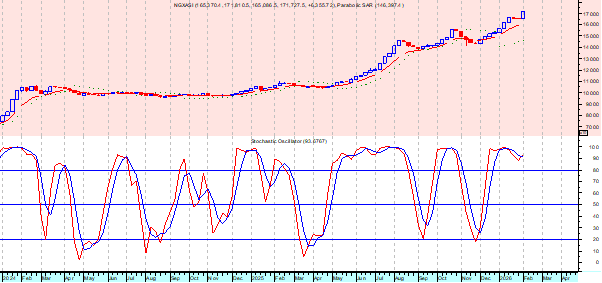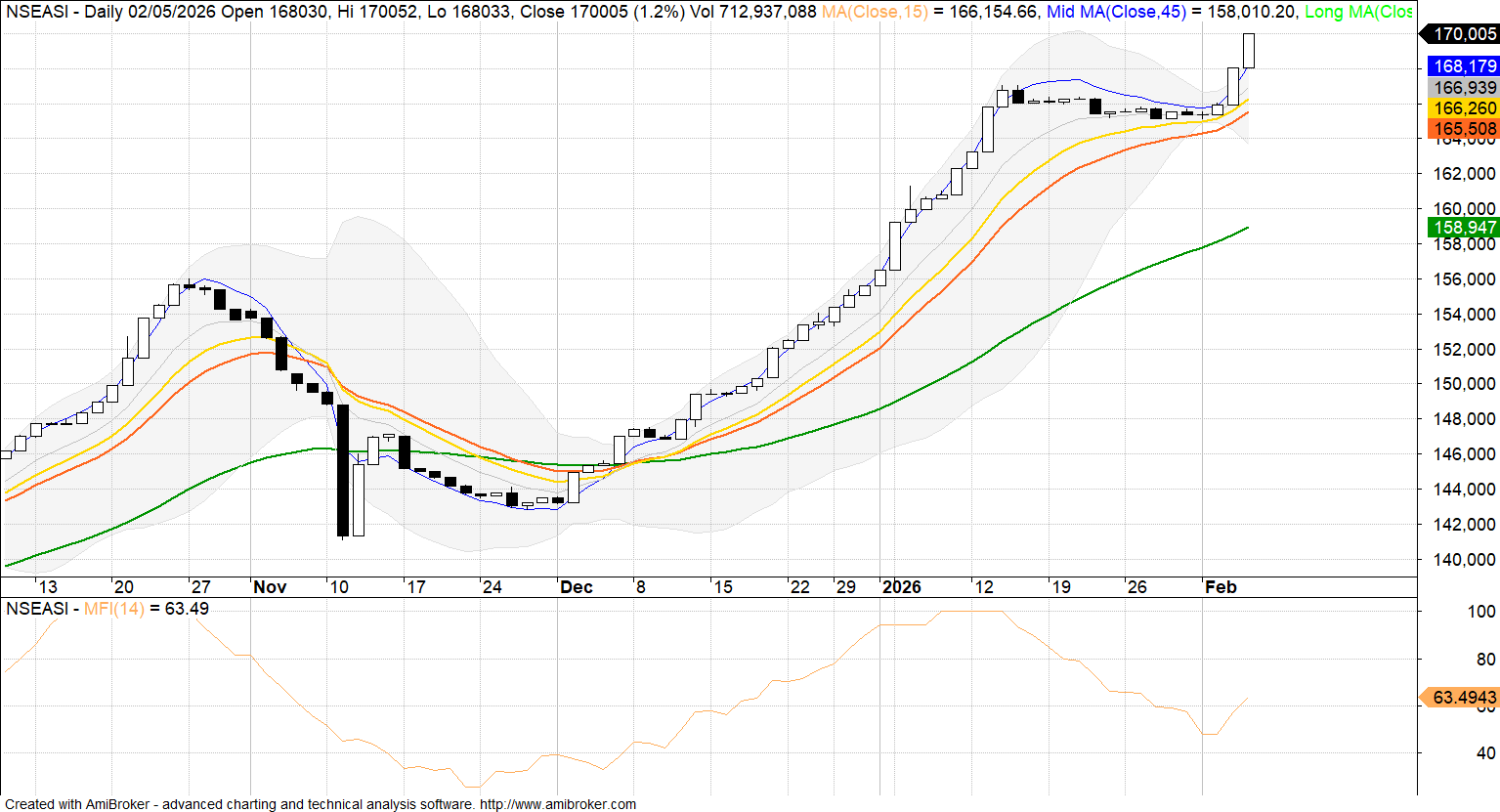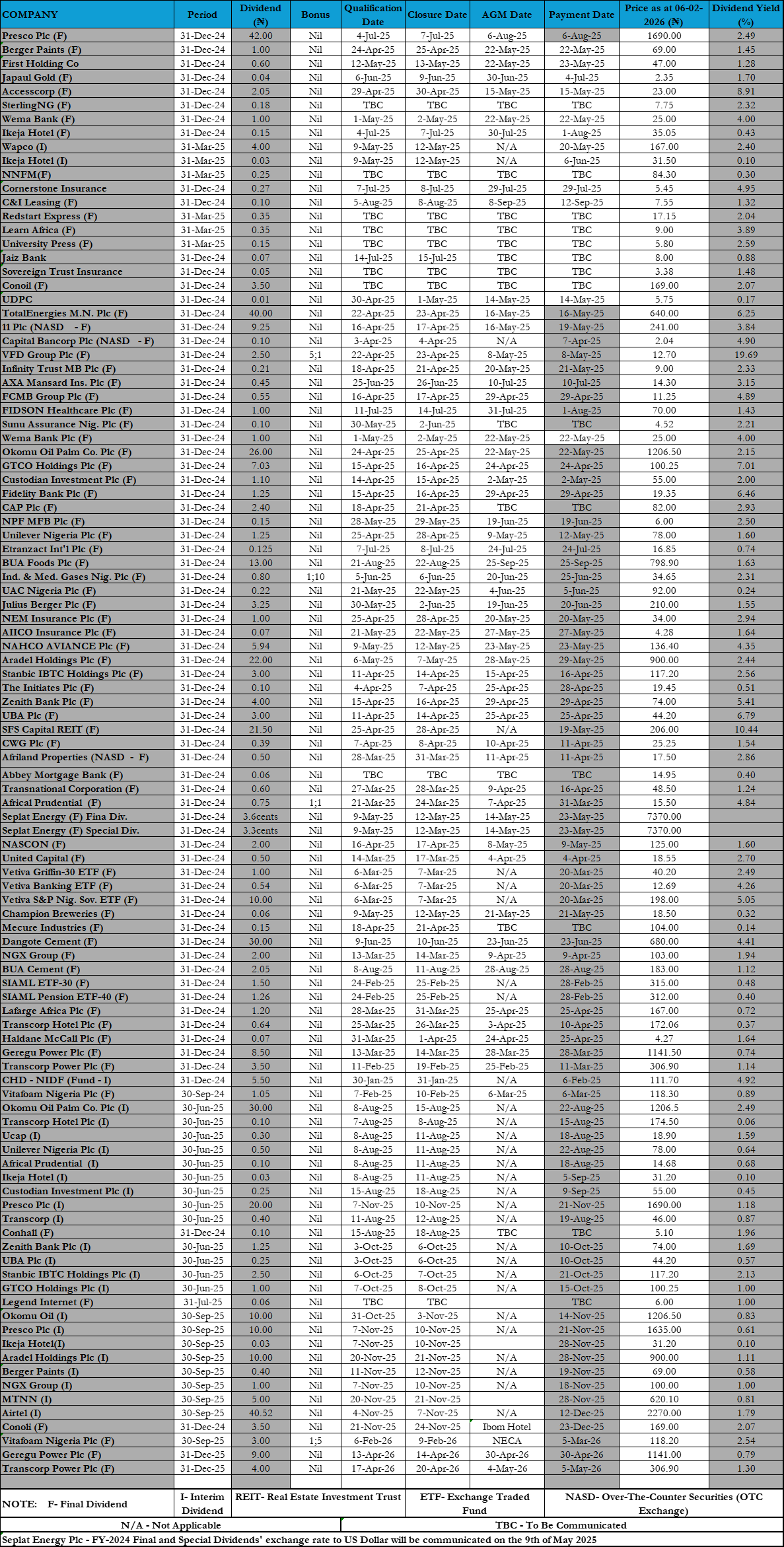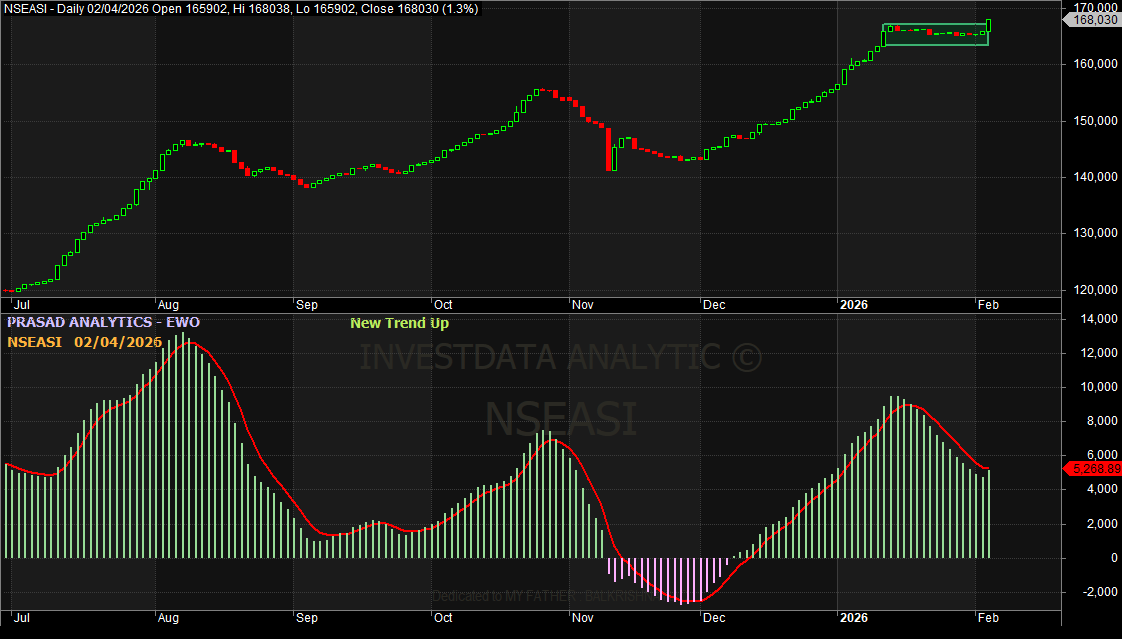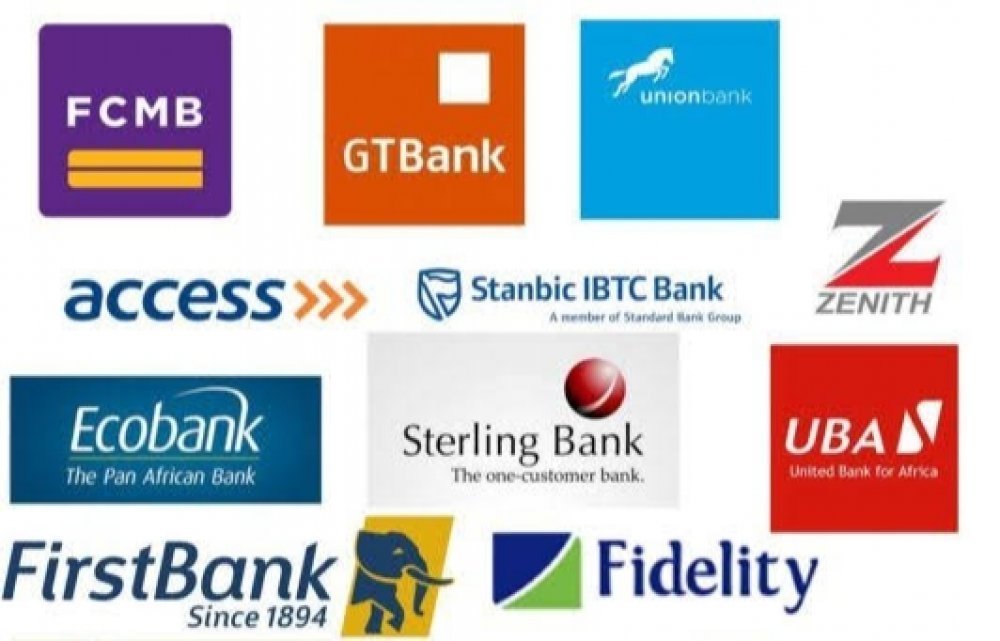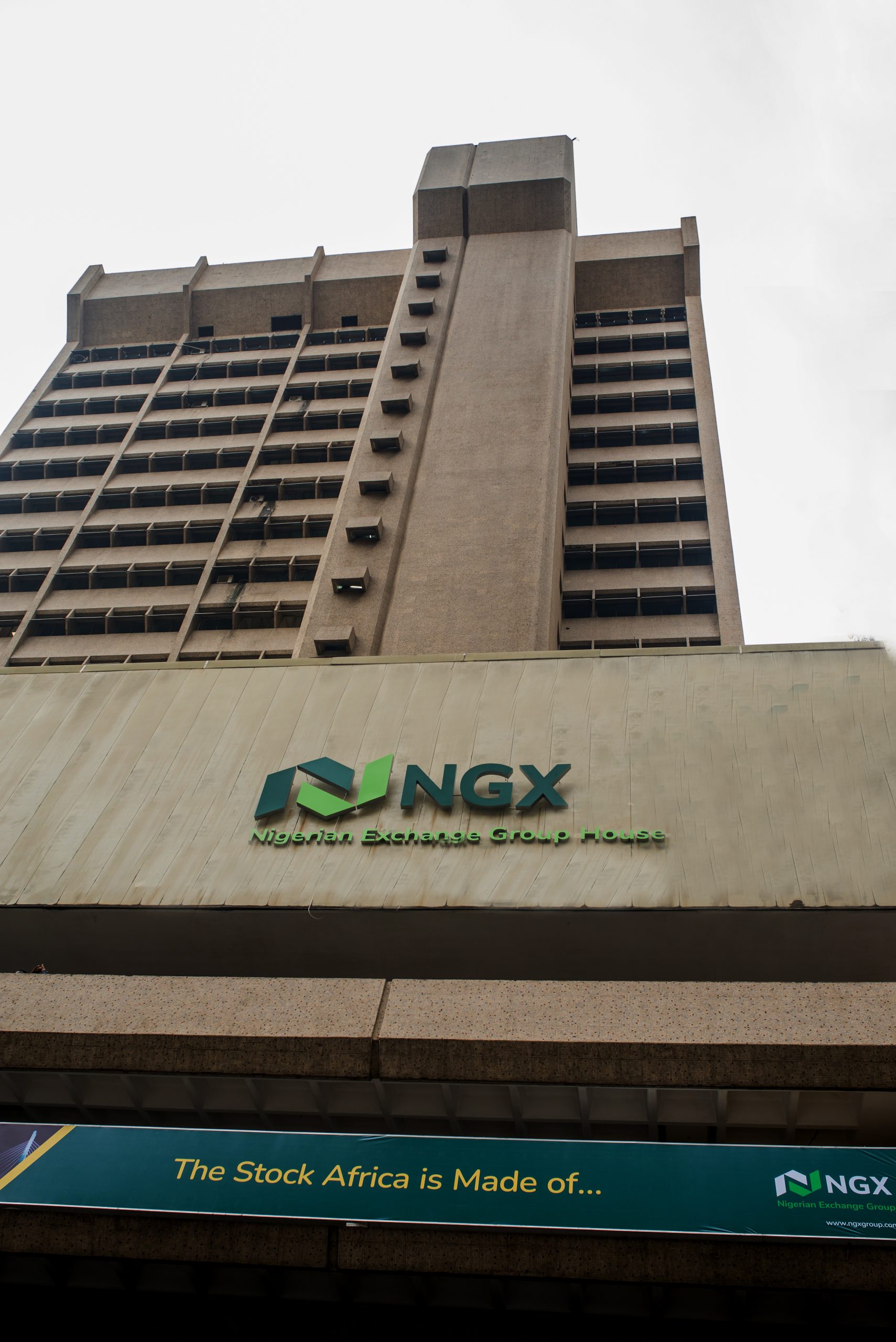
Market Update For November 26, 2025
The Nigerian equities market slipped back into negative territory on Wednesday, marking a continuation of the corrective trend that has shaped the week’s trading pattern. After a brief respite on Tuesday, the market returned to a bearish tone as profit-taking and cautious sentiment resurfaced across several major sectors. Investors maintained a defensive posture throughout the session, reflecting the absence of strong domestic catalysts and ongoing macroeconomic uncertainty.
Trading behaviour showed that market participants continued to rotate funds through the banking sector, which remains the most liquid segment of the market and a key driver of turnover. Although broad sentiment remained weak, activity levels improved, indicating that investors are still taking tactical positions in selected counters while avoiding large speculative bets. This cautious approach was particularly visible in Industrial Goods, Consumer Goods, and Financial Services, where selloffs dominated as traders reassessed risk exposure.
Despite the negative close, the improved turnover suggests that the market is not lacking participation but is instead undergoing a controlled pullback. Investors appear to be closely watching global developments, fiscal policy signals, and expectations around corporate results, all of which could shape sentiment as the year draws to a close. The banking sector continued to attract attention, driven by favourable valuations and consistent liquidity, even as overall market breadth remained negative.
In the global commodities space, oil prices stabilised on Wednesday after a sharp decline in the previous session. The market continued to react to growing concerns about oversupply and renewed discussions surrounding a potential Russia–Ukraine peace deal. Brent crude traded at $62.35 per barrel after shedding thirteen cents, while West Texas Intermediate hovered near $57.88, down by seven cents. Market sentiment in the oil sector remains broadly bearish as traders anticipate an oversupplied 2026, with no immediate demand catalysts capable of lifting prices. The possibility of sanctions on Russian energy being relaxed if peace negotiations advance has also contributed to the negative tone. Analysts note that if a formal deal is reached, it could introduce additional barrels into the global market and push WTI closer to $55, heightening the downward trend.
The movement in oil prices carries implications for Nigeria’s revenue expectations, foreign exchange liquidity, and broader macroeconomic stability. Lower oil prices tend to influence investor sentiment on the equities market, particularly for companies with high energy exposure or those sensitive to operating cost fluctuations. This interplay between global energy dynamics and domestic equities performance continues to shape trading decisions.
From a technical standpoint, the NGX All-Share Index continues to display signs of weakening momentum. The market has struggled to convincingly break above the 143,800 to 144,000 resistance band, a critical zone that has prevented sustained upward movement. Short-term indicators confirm this slowdown, with the index trading below its nearest moving averages. The Relative Strength Index is trending downward, signalling reduced buy interest, while other technical indicators point to a market still under selling pressure. Market breadth has remained negative, reinforcing the idea that the decline is broad-based rather than concentrated in isolated names.
Even with this weakness, the index still hovers above the 142,500 support level, an important technical line that could attract bargain hunters if maintained. A hold above this region may create opportunities for short-term rebounds, especially as some investors position ahead of expected corporate disclosures and year-end adjustments. However, a breakdown below this support could open the door to deeper corrections and trigger fresh selloffs, especially in highly priced stocks.
Looking ahead, the market is expected to trade in a mixed but cautious pattern. Investors will continue to closely monitor global oil trends, currency movements, and evolving macro signals. Banking stocks are likely to remain the centre of activity due to their liquidity advantage and relatively attractive pricing. Industrial Goods may see continued profit taking, while Consumer Goods could face pressure from rising operational costs and slow demand outlooks. Volatility should persist, and the overall direction of the market will likely depend on risk appetite, fresh inflows, and the emergence of strong macroeconomic drivers.
The market eventually closed weaker as the All-Share Index declined by 0.49 percent to settle at 143,064.57 points from the previous 143,763.13 points, while market capitalisation contracted by ₦444.32 billion to ₦91.00 trillion. Year-to-date return moderated to 39.00 percent. The day’s decline was driven by sell pressure in major counters such as CADBURY, BUACEMENT, NB, NEM, NGXGROUP, WAPCO, and twenty-one other laggards. AIICO emerged as the top gainer, while LEARNAFRCA led the losers’ chart. NCR and IKEJAHOTEL recorded new 52-week highs at ₦49.70 and ₦25.00 respectively. Trading activity improved as total volume rose by 32.76 percent to 738.35 million units valued at ₦35.54 billion in 19,919 deals. GTCO, ACCESSCORP, and FIRSTHOLDCO dominated the session in volume terms, while GTCO remained the highest in value at ₦11.57 billion.
Invest 2026 Traders & Investors Summit
Theme: Pre-Election Year Investment Opportunities & Risks
Sub-Topics
- Comprehensive Earnings Guide for Profitable Investing and Trading in 2026, by Mr Peter Sunday Adebola, Managing Director/CEO Edgefield Capital Management Ltd
- Pre-Election Year Rally: How Economic Events & Tax Reforms Fuel Bull Or Bear Cases In 2026, by Mr Teriba Adeboye, MD/CEO, Qualinvest Capital ltd
- NGX Pre-Election Year Performance & Historical Patterns:10 Golden Stocks For Profitably Investing, by Mr Ambrose Omordion, CRO. Investdata Consulting Ltd
- Nigeria Infrastructural Gap & Fiscal Policy Reforms: Where are Investment Opportunities in 2026, by Mr Tope Ojo, Managing Partner, Tope & Tunde Estate Surveyors & Valuers
- Investment Opportunities In The Alternative Markets In 2026 & Beyond, by Dr Sylvester Anaba (PhD, FCS) Head Research, United Capital Plc
- The Pre-election Economy & 2016 Budget: Implementation and Impact On NGX, by Mr Abiola Rasaq, Former Head, Investor Relations & Portfolio Investments United Bank For Africa Plc
- NGX New Highs & Correction: The Power Of Price Action, Time & Momentum In Profitable Trading In 2026 & Beyound, by Mr Abdul-Rasheed Oshoma Momoh, ED Operations, TRW Stockbrokers Ltd
- Strategies For Equity Investing & Trading In A Pre-Election Year, by Mr Kebira Jimoh Aruna, MD/CEO GlobalView Capital Ltd
Riding the tide of pre- election Years in Nigeria, 2026 is not just any year—it’s part of a powerful historical trend or pattern that should be known to smart traders or discerning investors in any investment window, market or exchange in Nigeria today. It comes with tradable opportunities and risks that are associated with elections and post-elections. The ability to navigate between politics and economy creates the wealth to makes the difference in your investment. The reading of a nation’s electoral cycle and how investors perceive whether there could be a change in leadership or continuity, is a major factor that results in much of the uncertainty in pre-election years have been known for. This, it is believed can, and does spike market volatility and businesses, especially when it is seen that a new party may take power. This summit will help market players to navigate 2026 profitably by maximizing gains and minimize losses
Take away from this summit includes:
How to construct a resilient and Powerful Portfolio that adapts to market and economic changes.
● What to expect from the market and economy as the new tax reforms kicks off in 2026.
● Why historical patterns and trends in Nigerian election cycle is important when taking your investment decision in 2026 and beyond.
● The power of liquidity and corporate earnings in price movement.
● How to anticipate big sector moves and recovery in 2026 with ongoing reforms
● Understanding the cycle of 4 years opportunities time frames that comes with election preparation in Nigeria
● 10 golden stocks for 2026
Date: December 6, 2025
Fee: N75,000
Venue: Zoom
If you want to be among the winning investors and traders in 2026, send Yes to: 08028164085, or 08179547605 now.



